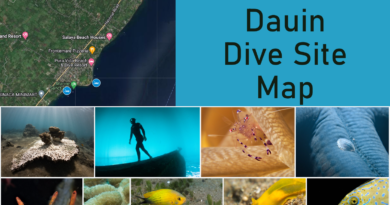Diver Panic and Twitter Moral Panic
I have experiences with two kinds of panic.
Scuba Diver Panic
One is the fake panic I engage in when teaching the PADI rescue diver course. This is a great course, probably my favorite course to teach. One of the elements of the course is to teach the diving student to deal with a diver in distress who is panicking. That’s not a trivial undertaking.
A diver can panic when things go wrong to a degree which he perceives as out of his control, and life-threatening. A beginner running out of air, and not being sufficiently trained to deal with the situation will panic, and at that point stop gauging his situation realistically. Anyone approaching him will be considered a threat as well in his panicked state, and it’s necessary to avoid or deflect attacks by such a panicked diver. When I teach this I occasionally get to play the role of the panicked, fighting diver, which is a lot of fun.
Twitter Musk Panic
The second panic I have experienced is a moral panic on social media. I don’t participate in it, but I observe it, and the parallels to diver panic are interesting.
Recently, tech billionaire Elon Musk bought Twitter, and this has received a lot of media coverage. I use Twitter to share my underwater photos and videos, see other underwater image makers’ shots, and catch up with the new scientific literature in neuroscience, ecology, fish biology and evolution. It’s a good tool for these purposes.
I had a while ago blocked/muted some people and keywords which keeps me from seeing the subculture of the professionally offended. I don’t hate these people, I am just not interested in their psycho problems and their public airing of their grievances. Hence normally I am spared from seeing the comments and rants about the latest academic outrage. However, the Elon-Musk-buys-Twitter moral panic was so widespread and thorough that I saw a significant number of complaints where fellow academics were deeply concerned about the changes in Twitter management and considering leaving the platform due to expected very negative changes.
In terms of the Tweets I saw other than the complaints about Musk nothing changed for me, though the complaints about Musk made it sound as if Twitter had turned into a platform dedicated to spreading the message of the second coming of Joseph Goebbels.
Yes, it’s possible that for other people there were real changes, though the official Twitter statements are that the “content moderation“ ( = censorship) hadn’t changed a bit. I have not seen any credible information to the contrary. I haven’t dug deep into the matter, but the complete lack of sudden “hate speech” on my own Twitter feed is really in striking contrast to the chorus of complaints. It’s pretty clear to me that the Twitter community is not facing a real problem nearly of the magnitude it’s portrayed in.
I tried to make fun of this trend on Twitter but there was very limited response to my joking Tweet:
Omfg, do people really lick anemones to get high? Or is this #fakenews and #misinformation? Either way, let’s have a moral panic and blame @elonmusk !https://t.co/PgqKUnZOjl
— Klaus Stiefel (@Pacificklaus) November 4, 2022
The Parallels
The parallels between the panicking diver underwater and the panicking social media academics are curious and imperfect. In diving panic is rightfully feared as a major cause of accidents, while parts of the social media user community seems to almost enjoy a good moral panic.
In scuba panic the trigger is an event which is perceived as threatening to the very existence of the diver. If the situation is actually threatening (there are simple and effective protocols to share breathing air between divers, for instance) is secondary at this point. Emotions take over.
I believe that the triggering event in the case of the Twitter moral panic is that a lot of folks perceive that their (imagined?) existence as morally outstanding online citizens is threatened when they interact on a platform owned by a non-PC capitalist. If the situation is actually threatening to a civilized discourse, especially to a civilized discourse in their rather selective specialized community is secondary at this point. Emotions take over.
It’s always curious to me how academics, supposedly critically thinking intellectuals, stick with group think. It was very noticeable that on academic Twitter the anti-Musk outrage was much more pronounced than on photography Twitter. The photographers just minded their own business and kept posting good photographs.
Be photography Twitter.


